“Racism pervades all levels and structures of Canadian settler society and it creates, complicates, perpetuates and ensures patterns of Indigenous homelessness across Canada” – Jesse Thistle
Learning About Indigenous Homelessness
The Issue
Indigenous communities demonstrate remarkable resilience and cultural strength in the face of adversity, including the complex issue of homelessness. To fully understand the challenges faced by Indigenous individuals and families, it is crucial first to acknowledge and celebrate the unique strengths and resilience that exist within their respective communities.
Homelessness has disproportionately affected Indigenous families, particularly women and children, compared to the broader population. The impact of Indigenous homelessness extends beyond individuals and often affects entire families. In Calgary, for instance, despite Indigenous people making up only 3% of the population, approximately 30% of those experiencing homelessness have Indigenous ancestry. At Inn from the Cold, nearly 60% of the families we serve are Indigenous.
Indigenous peoples are more likely to face poverty, unemployment, and inadequate housing conditions. This disproportionate representation can be directly attributed to a complex interplay of factors rooted in Canada’s history of colonization and exploitation. Historical trauma has led to the loss of land and cultural identity, while intergenerational trauma persists due to the legacy of residential schools and the Sixities Scoop. Systemic discrimination, both at the micro and macro levels, further exacerbates these challenges. Additionally, the lack of culturally appropriate services and support compounds the difficulties Indigenous individuals and families face in accessing and maintaining stable housing.
Addressing the overrepresentation of Indigenous people in homelessness necessitates a comprehensive approach that not only addresses immediate housing needs but also focuses on long-term solutions. It is crucial to recognize and rectify the historical injustices and ongoing systemic barriers faced by Indigenous families. By doing so, we foster a sense of hope and empowerment, working collaboratively towards a future where all families, irrespective of their cultural background, have equitable access to safe and stable housing.
Understanding Indigenous Homelessness
Being without a home from an Indigenous worldview is not simply a lack of accommodation or structural habitation but also isolation from their relationships to environment, family, cultural identity, and community.
Indigenous homelessness in Canada refers to a multifaceted and distinct form of homelessness experienced by Indigenous peoples that extends beyond the lack of a stable home. It encompasses the historical, cultural, and socio-economic factors contributing to disrupting Indigenous individuals, families, and communities from their traditional lands, cultures, and support systems.
The experiences of homelessness among Indigenous peoples in Canada differ from those of non-Indigenous populations. Indigenous homelessness acknowledges the impact of colonization, forced relocation, intergenerational trauma, and the loss of cultural identity and connection to the land. It recognizes the importance of incorporating Indigenous perspectives, strengths, and resilience in addressing homelessness and calls for policies and practices rooted in Indigenous worldviews, self-determination, cultural sensitivity, and meaningful engagement with Indigenous communities.
For a greater understanding of Indigenous homelessness, we encourage you to check out the 12 Dimensions of Indigenous Homelessness.
*Source: Summarized from the Canadian Observatory on Homelessness, Definition of Indigenous Homelessness.
A Strengths-based Approach
A strengths-based approach is crucial when addressing Indigenous homelessness as it acknowledges and celebrates Indigenous communities’ inherent strengths, resilience, and cultural richness. We foster a more holistic and empowering perspective by focusing on their strengths rather than solely on deficits or challenges. A strengths-based approach recognizes that Indigenous communities possess valuable knowledge, traditions, and community networks to inform effective solutions. It respects the self-determination of Indigenous peoples by involving them as active participants in the design and implementation of initiatives to address homelessness. By honoring their cultural identity, promoting community-led initiatives, and incorporating traditional practices, a strengths-based approach creates space for Indigenous communities to reclaim agency and determine their own pathways toward stable housing and well-being.
Through this collaborative and empowering lens, we can work towards reducing Indigenous homelessness and supporting the self-determination and flourishing of Indigenous communities.
The Facts in Canada
Here are some important facts that highlight the significant challenges faced by Indigenous communities in Canada concerning homelessness and poverty:
Indigenous peoples are disproportionately represented among the homeless population in Canada, with an estimated 30% of individuals experiencing homelessness having Indigenous ancestry (Canadian Observatory on Homelessness).
Despite comprising approximately 4.9% of the overall Canadian population, Indigenous peoples are overrepresented among those experiencing homelessness (Government of Canada).
Indigenous children are disproportionately affected by poverty, with an estimated 47% of Indigenous children living in poverty compared to 17% of non-Indigenous children (Canadian Centre for Policy Alternatives).
The unemployment rate for Indigenous peoples in Canada consistently exceeds the national average. In 2020, the unemployment rate for Indigenous peoples stood at 12.5%, compared to 7.5% for non-Indigenous peoples (Statistics Canada).
Indigenous peoples experience inadequate housing conditions at a higher rate than non-Indigenous populations, with 29% of Indigenous households in need of major repairs compared to 13% of non-Indigenous households (Statistics Canada).
Indigenous women face heightened vulnerability and represent a significant proportion of homeless populations, with over 50% of women experiencing homelessness being Indigenous in some urban areas (Canadian Observatory on Homelessness).
The intergenerational trauma resulting from the legacy of residential schools continues to have lasting effects, contributing to higher rates of homelessness and poverty among Indigenous peoples (Truth and Reconciliation Commission of Canada).
Indigenous peoples experience higher rates of food insecurity, with 22% of Indigenous households facing food insecurity compared to 9% of non-Indigenous households (Statistics Canada).
These facts shed light on the extent of Indigenous homelessness and poverty in Canada, highlighting the urgent need for culturally sensitive policies, support systems, and initiatives to address these systemic issues. It is essential to recognize that despite the significant challenges indicated by these facts, Indigenous communities have demonstrated remarkable strength, perseverance, and resilience in the face of adversity
The Solutions
While the statistics presented underscore the magnitude of Indigenous homelessness and poverty in Canada, it is essential to explore solutions that honour the existing resilience of Indigenous people. When addressing Indigenous homelessness in Canada, a range of recommended solutions have been proposed. Here is a list of potential approaches and strategies aimed at fostering inclusive and equitable solutions:
Culturally sensitive and holistic approaches: Develop housing and support services that honor Indigenous worldviews, values, and cultural practices. These initiatives should respect the diverse Indigenous cultures and traditions, ensuring they are rooted in respect and understanding.
Indigenous-led initiatives: Empower Indigenous communities to take the lead in addressing homelessness by providing resources, funding, and support for community-driven solutions. By recognizing their expertise and self-determination, we can foster sustainable change.
Strengths-based approach: Incorporate the strengths of Indigenous worldviews into housing and shelter programs. We can build on community strengths and wisdom by restructuring program evaluation approaches to align with Indigenous-based practices.
Housing-First approach: Prioritize immediate access to stable and safe housing for individuals experiencing homelessness, along with comprehensive wraparound support services. These services can include mental health care, addiction support, and life skills training.
Land and self-determination: Support initiatives that enable Indigenous communities to regain control over their traditional lands and resources. This empowerment fosters self-determination and creates opportunities for economic development.
Collaborative partnerships: Foster meaningful partnerships between Indigenous communities, government agencies, non-profit organizations, and service providers. Working together can ensure culturally appropriate and effective solutions to homelessness.
Education and employment support: Invest in education and employment programs that address the specific needs and barriers faced by Indigenous individuals. We can enhance self-sufficiency by promoting skills development, job training, and access to sustainable employment opportunities.
Trauma-informed care: Recognize and address the intergenerational trauma experienced by Indigenous peoples through culturally appropriate trauma-informed care, counseling, and healing programs. By providing accessible support, we can contribute to healing and well-being.
Preventative measures: Focus on prevention by addressing the root causes of homelessness, such as poverty, discrimination, and lack of affordable housing. This can be achieved through policy changes, social programs, and income support.
Capacity-building and training: Invest in capacity-building initiatives that empower Indigenous individuals and communities with the knowledge, skills, and resources to address homelessness within their communities effectively.
It’s important to note that these recommendations are not exhaustive and should be tailored to regional contexts, Indigenous cultures, and community needs. By embracing these strengths-based approaches, we can create a more inclusive and equitable society where Indigenous peoples have the opportunity to thrive.
















